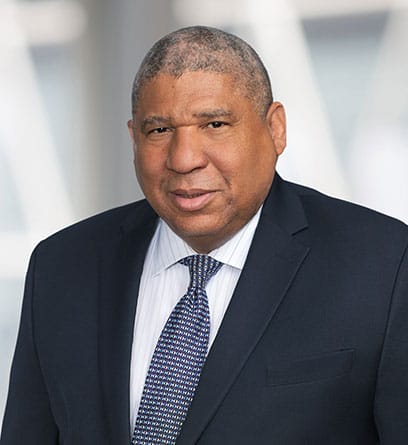While the collegiate sports world continues to closely monitor the actions of the federal government and the growing push to enact federal legislation related to a student-athlete being compensated for use of his/her name, image and likeness (“NIL”), the states are not waiting to address these important issues.
Despite two recently filed bills by Senators Booker (D-NJ) and Blumenthal (D-CT) and a less expansive one from Senator Murphy (D-CT), the inaction from Congress and the NCAA related to NIL legislation has not stopped the shot clock from running on other state legislatures who continue to search for solutions related to the NIL dilemma. States have become privy to the immediacy of NIL legislation and the necessity to keep their schools competitive across the college sports landscape.
Iowa is the most recent state to realize the importance of addressing this issue. Earlier this month, Iowa State Senators Nate Boulton (D) Brad Zaun (R) co-sponsored Senate File 245 (the “Iowa Bill”), a proposed law related to compensation for college athletes.
If Iowa’s NIL bill passes, the bill will become only the second enacted law in the U.S., as it is set to take effect on July 1, 2021 and join Florida’s “Intercollegiate Athlete Compensation and Rights” (the “Florida Bill”). This article will provide a general overview of certain similarities and differences between the Iowa Bill and the Florida Bill.
Iowa Bill: Compensation
Ability of “earning compensation” broadly defined
The Iowa Bill does not provide a definition of “compensation” but broadly states that a university shall not enforce any rule or regulation that prevents a student-athlete from “earning compensation” for use of the athlete’s NIL. The Florida Bill does, however, require that any compensation paid to a student-athlete be commensurate with the “market value” of the specific athlete. A mechanism for determining “market value” is left unresolved.
One may argue that even if the Iowa Bill is silent, it is implied that compensation paid to a student-athlete should be commensurate to such athlete’s market value, and that the parties entering into contractual negotiations regarding use of a student-athlete’s NIL will negotiate compensation reflecting market value and indicating a sense of fairness. Because the Iowa Bill has no explicit limitations around a student-athlete “earning compensation” or the types of compensation that a student-athlete can earn, it could be interpreted that the Iowa Bill would favor the student-athletes on these compensation issues.
Absence of Non-Affiliation Requirement in the Iowa Bill
The Florida Bill states clearly that compensation is to be provided only by a “third party unaffiliated with” the student-athlete’s public or private university and restates the requirement of non-affiliation by communicating that those entities whose purpose includes supporting or benefitting the university’s athletic programs are prohibited from providing compensation for use of a student-athlete’s NIL.
Surprisingly, the Iowa Bill is silent on both a requirement of non-affiliation from the entity or an individual providing compensation to the student-athlete and includes no explicit prohibition on entities whose relationship includes supporting or benefiting a university’s athletic program.
It is possible that Senators Boulton and Zaun believe that a university’s athletic department can safeguard the integrity of the process and not disrupt the student-athlete’s ability to explore free market compensation for use of his or her NIL. This a great leap of faith. A fairly predictable and, therefore, well-established concern is the preferential treatment provided to those entities who financially support the university’s broad athletic activities, and will be provided priority and introductions to university athletes in order to enter into a contractual relationship for use of a prominent athlete’s NIL. This type of arrangement could be ripe for abuse, which has always been a concern in the collegiate world surrounding amateur athletes.
For example, College A in Iowa enters into a sponsorship deal with FarmEquip Company, a farm equipment manufacturer located in Iowa. Pursuant to its contractual relationship, FarmEquip Company host a meet and greet with the football players of College A after two home games each year. Given this informal but important access to a student-athlete, FarmEquip Company may be in a better position to pay a football player at College A for use of his NIL due to the preexisting relationship and access that FarmEquip Company has with College A.
Some may argue that the preexisting relationship between the university and the student-athlete provides comfort that the student-athlete, along with his or her representation, is entering into an NIL deal with a sophisticated and reliable counterparty. That same level of sophistication and reliability may not be possessed or perceived by the student-athlete. Others may argue that the student-athlete’s options are influenced by the access and relationship already established between the entity and the university. Historically, and based on the belief of potential recruiting abuses, student-athletes have not been afforded the ability to market themselves for economic opportunity, and safeguards to ensure the integrity of a student-athlete being compensated for use of its NIL under the Iowa Bill may be helpful as it tries to implement new legislation.
Restrictions on “in-person advertising” & Adherence to the Team Contract and “Official, Mandatory Team Activities”
The Iowa Bill states that unless the student athlete’s school provides approval, a student-athlete shall not be offered a contract that “requires the athlete to engage in in-person advertising” during “official, mandatory team activities.” This prohibition on this activity during required activities likely helps set expectations that a student athlete’s desire to be compensated for use of its NIL should not outweigh or interfere with the other obligations incumbent on a student-athlete.
Under the Iowa Bill, a student-athlete may receive compensation for use of its NIL when the athlete is not engaged in “official, mandatory team activities.” While the Florida Bill and the Iowa Bill both require a student-athlete to abide by its “team contract,” the Iowa Bill defines further requirements related to team activities. First, such activities must be “recorded in writing and made available to the public.” This requirement is likely a responsibility of the university’s athletic department or the specific sport, and should be used as a guidepost to help student-athletes plan for time in which the athlete may pursue NIL opportunities. Second, the team activities “shall not exceed twenty (20) hours per week during the athletic season and eight (8) hours per week during the off-season.” These time restrictions are meant to provide balance for the specific athletic team while allowing the athlete to pursue his or her interest, including NIL and academic interests.
Confidentiality Limitation when Contract is Disclosed to the University
Both the Florida Bill and the Iowa Bill requires the contract between a student-athlete receiving compensation for use of its NIL and a counterparty be disclosed to the university in which the student athlete is enrolled. The Iowa Bill does provide additional confidentiality protections around the contract by limiting disclosure in the event any trade secret or confidentiality requirement might be violated.
Higher Threshold for a Professional to Represent Student-Athletes
Both the Iowa Bill and Florida Bill requires that any professional service person who might provide assistance to a student-athlete in the NIL process must be a member of a bar or licensed in its respective state in order to provide professional representation to a student-athlete. Along with athlete agents or legal representation, the Iowa Bill also includes financial advisors among those professionals who are permitted to represent a student-athlete.
The Iowa Bill requires the Iowa State Treasurer to provide prior certification of such professionals before any representation can be entered into with a student-athlete. Such certification by the Treasurer limits the potential pool of professionals who are able to assist student-athletes by requiring such professional to have “significant qualifications for, or demonstrated experience providing, representation to college athletes in negotiations or have financial or other relationships with athletic associations, conferences, or other groups or organizations with authority over intercollegiate athletics.”
No specific standards are included in the Iowa Bill that would determine what constitutes such “significant qualifications or experience.” The requirement that a professional has experience providing representation to college athletes likely makes it more difficult for a younger professional to satisfy the requirements to be certified. The requirement that the professional has “significant qualifications” is a subjective requirement and could severely limit the pool of representatives available to a student-athlete, and creates the typical Catch 22 quandary.
The rush for states to provide its student-athletes the right to be compensated for use of its NIL is intensifying. Senator Boulton has previously stated that the Iowa Bill was introduced because “we want to make sure we are not granting lesser rights to Iowa student-athletes.” With the effective date of the Iowa Bill approximately four months away, student-athletes will certainly recognize the potential to enroll at a university in a specific state to earn compensation for use of its NIL. As a result, look for additional states to start entering this race and for the senatorial bills to gain some traction before the shot clock reaches zero. The next several months will most certainly bring new developments.
Thompson Coburn continues to monitor these developments in college athletics and the impact on student athletes, their universities and other participants. Our previous article on this matter can be found here.
Bob Wallace is the chair of Thompson Coburn’s Sports Law Group. Matthew Misichko is an associate in the Firm’s corporate & securities practice.


